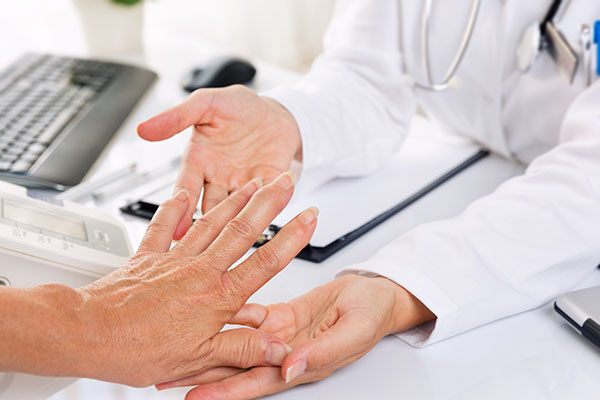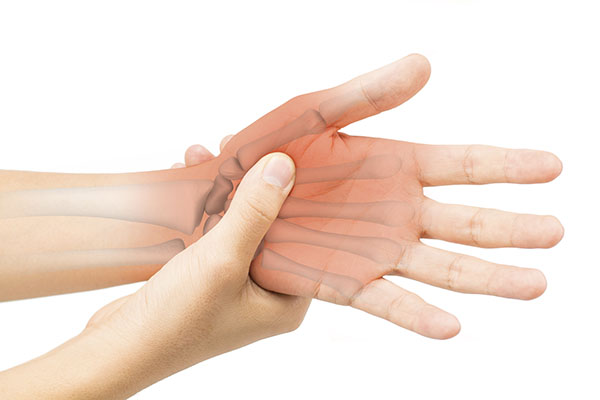January 17th, 2019

Osteoarthritis of the hand is a condition marked by wear and tear on the joints. Specifically, the cartilage between your hand bones starts to wear down. When this happens, the cushioning effect of smooth cartilage between your hard, stiff hand bones is reduced. When bones of the hand start to rub together with a weakened or missing layer of cartilage, osteoarthritis (OA) symptoms occur.
Read on to learn more from hand surgery specialists in Atlanta about hand OA and how to treat it.
Signs and Symptoms
Osteoarthritis of the hand causes stiffness and pain when you move the bones of your hand. Pay attention to your hands as you use them. Do you feel pain when you perform specific tasks, like opening a jar or turning a door handle? Do your fingers feel stiff after typing? Worse, do you feel like your hands are less mobile? If so, then these may be symptoms of hand OA. Weakness and redness around joints may also be a sign of OA.
Hand and wrist specialists also notice that patients report clicking or bumping noises when they use their hands. And even mild discomfort can be a symptom of early OA. It is a progressive condition, meaning that its symptoms can worsen over time as cartilage breaks down.
Causes
While certain triggers can cause cartilage to break down, this process may happen on its own. Hand and wrist injuries can interfere with cartilage between your bones and cause OA. However, osteoarthritis may also run in your family, meaning that you can develop hand OA without an accident or injury.
Certain people are also more likely to develop OA. White adults are more likely to develop OA of the hand, and so are the elderly. Women are twice as likely to experience OA of the hand, as are overweight people.

Diagnosing Osteoarthritis of the Hand
Visit an orthopedic hand doctor if you think you're experiencing signs and symptoms of hand OA. If you're wondering, "Where can I find a hand orthopedic near me?" then try OrthoAtlanta first. Orthopedists specialize in bones, muscles, and connective tissue like cartilage in the body, and can examine your hands to determine if you're suffering from OA. They will listen to your symptoms, ask about your family history, and then you may undergo an X-ray of the hands.
Treatment Options
If your hand OA is minor, you may experience relief with certain hand exercises, or by using ice or heat to soothe affected joints. Certain assistive devices like splints can also help take the pressure off your joints and help you regain hand mobility. There are also anti-inflammatory drugs and topical creams that relieve pain and discomfort.
Surgery
If these and other conservative treatment options aren't effective, your doctor may recommend surgery. An experienced hand surgeon can treat your hand OA with procedures like joint fusion or joint replacement surgery. These procedures can provide effective relief from your symptoms. There will be a brief period of recovery after your procedure, after which you should experience relief.
Learn More
To learn more about hand OA, or to see a specialist to determine if you may be suffering from this condition, visit OrthoAtlanta. This team of hand surgery specialists in Atlanta is available to treat your condition so you can regain hand mobility and experience relief from symptoms like pain and stiffness.
Back






